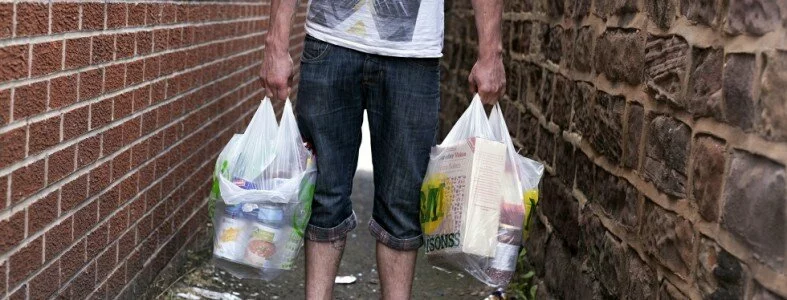
Food Poverty Report
Food poverty is hitting the headlines, but what does it mean – surely in a wealthy place like the United Kingdom everyone has enough to eat?
Please Read >>
- Food Poverty Presentation July 2013
- Food Poverty Report July 2013
- Food Poverty Report Appendix
A new report for Bristol’s Food Policy Council provides a valuable summary. It looks at evidence from reputable studies like the Joseph Rowntree Foundation’s ‘Minimum Income Research Programme’ and the government’s ‘Family Food Survey’. The report, produced by the Public Health team of Bristol City Council, summarises what the research tells us, as well as including some information for Bristol.
The take home message is that whichever way we look at it, around four million people in the UK cannot afford a healthy diet.
This is partly because the price of healthy nutritious food has been rising, meaning those on low incomes resort to choosing cheaper processed foods high in sugar and saturated fat but low in nutrients. The UK Low Income Diet and Nutrition Survey, commissioned by the Food Standards Agency, found that people on low incomes were more likely to have;
- Lower than recommended consumption of fruit and vegetables
- Higher than recommended consumption of sugar and saturated fatty acids
- Low intakes of dietary fibre
- Diets poor in iron, folate and vitamin D
- and over a third of low income households said they could not afford balanced meals
This is particularly worrying for the health of children, and the data show that between 2007 and 2011 the price of healthy food rose and nutrition got worse. One quarter of children in Bristol are growing up in households unable to afford, or to have access to, food to make up a healthy diet. Food poverty is not just about hunger, but about being appropriately nourished to attain and maintain health.
A growing number of community groups and charities are working to improve our food. Many local food co-operatives are buying healthy ingredients in bulk so members receive them at cost price, there are local food growing projects like Avon Wildlife Trust’s Feed Bristol, Severn Project, Sims Hill, The Community Farm and The Matthew Tree Project, as well as numerous community kitchens and cooking projects.
Charities like FareShare and FoodCycle redistribute food that would otherwise be wasted and provide it to those in need. Centres run by non-profit organisations where donated food is redistributed to people in need are seeing a significant increase in clients. These include food banks run by the Trussell Trust and other local organisations as well as The Matthew Tree Project’s fighting food poverty centres.
The Bristol Food Policy Council is working to bring about change in our whole approach to food. They see ‘Good Food’ as being not just tasty, healthy and affordable. It also needs to be good for nature, good for workers, good for local businesses, and good for animal welfare. Their 2012 Food Charter sets out their aims.
Further Information can be found in;
The Food Poverty report, appendix, and the Food Charter: http://bristolfoodpolicycouncil.org/
The ‘Who Feeds Bristol’ report:
http://bristolgreencapital.org/latest/2011/09/who-feeds-bristol/
Information from the Bristol Food Network: http://www.bristolfoodnetwork.org/